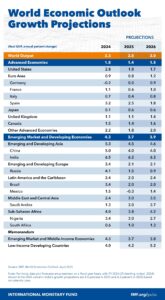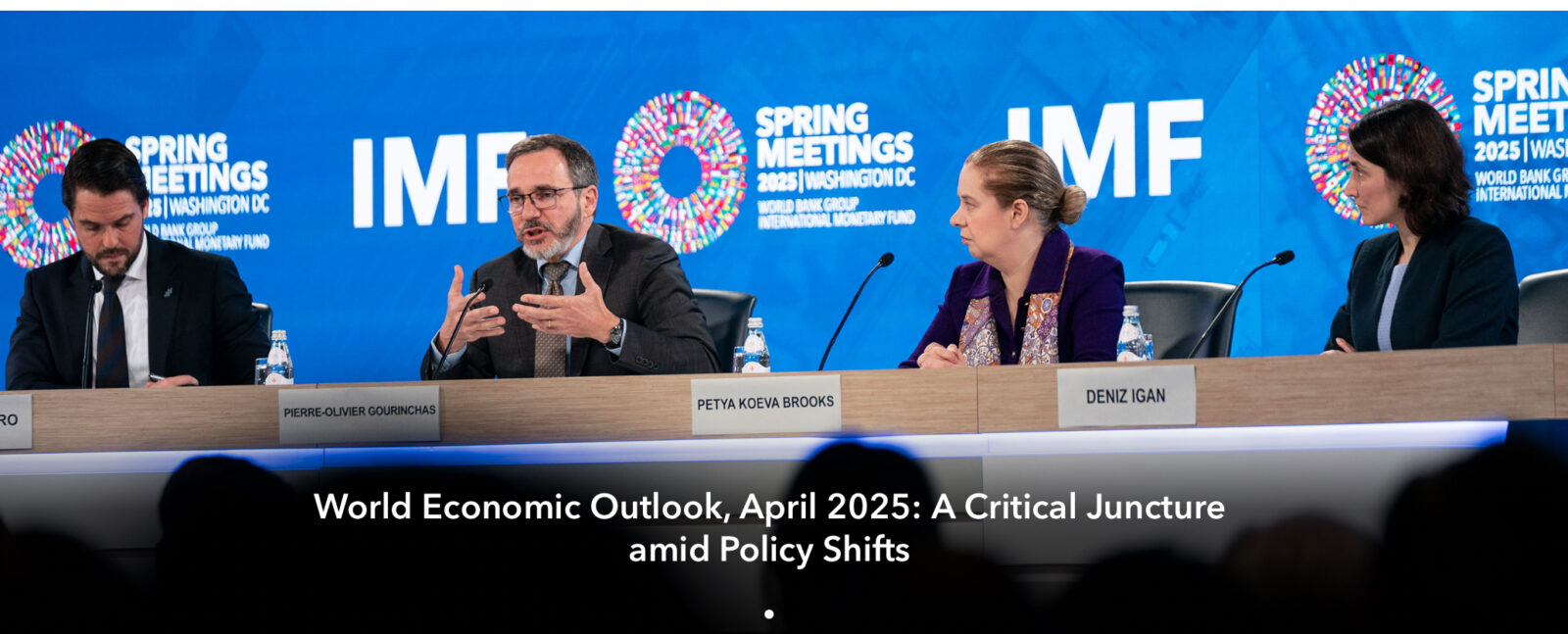NKECHI NAECHE- ESEZOBOR ( WASHINGTON DC)—The International Monetary Fund, IMF, on Tuesday revised Nigeria’s GDP growth forecast down to 3.0% in 2025 and 2.7% in 2026, from 3.4% in 2024.
This projection is contained in the IMF’s April 2025 World Economic Outlook (WEO),released today at the ongoing 2025 spring meeting of the World bank and IMF, in Washington DC, United States Of America.
The projections dropped by 0.2 and 0.3 percentage points, respectively.
However South Africa’s GDP growth forecast rose from 1.0 in 2025 to 1.3 in 2026, from 0.6 projected in 2024 while Sub- Sahara Africa GDP growth is projected to rise to 3.8 in 2025 to 4.2 in 2026, from 4.0 in 2024.
According to the report after enduring a prolonged and unprecedented series of shocks, the global economy appeared to have stabilized, with steady yet underwhelming growth rates.
The report however, noted that the landscape has changed as governments around the world reorder policy priorities and uncertainties have climbed to new highs.
It added that “forecasts for global growth have been revised markedly down compared with the January 2025 World Economic Outlook (WEO) Update, reflecting effective tariff rates to levels not seen in a century and a highly unpredictable environment. Global headline inflation is expected to decline at a slightly slower pace than what was expected in January.
It added that “Intensifying downside risks dominate the outlook, amid escalating trade tensions and financial market adjustments. Divergent and swiftly changing policy positions or deteriorating sentiment could lead to even tighter global financial conditions.
“Ratcheting up a trade war and heightened trade policy uncertainty may further hinder both short-term and long-term growth prospects. Scaling back international cooperation could jeopardize progress toward a more resilient global economy.
It recommended that countries should work constructively to promote a stable and predictable trade environment and to facilitate international cooperation, while addressing policy gaps and structural imbalances at home.
“This the report said will help secure both internal and external economic stability. To stimulate growth and ease fiscal pressures, policies that promote healthy aging and enhance labor force participation among older individuals and women could be implemented”











